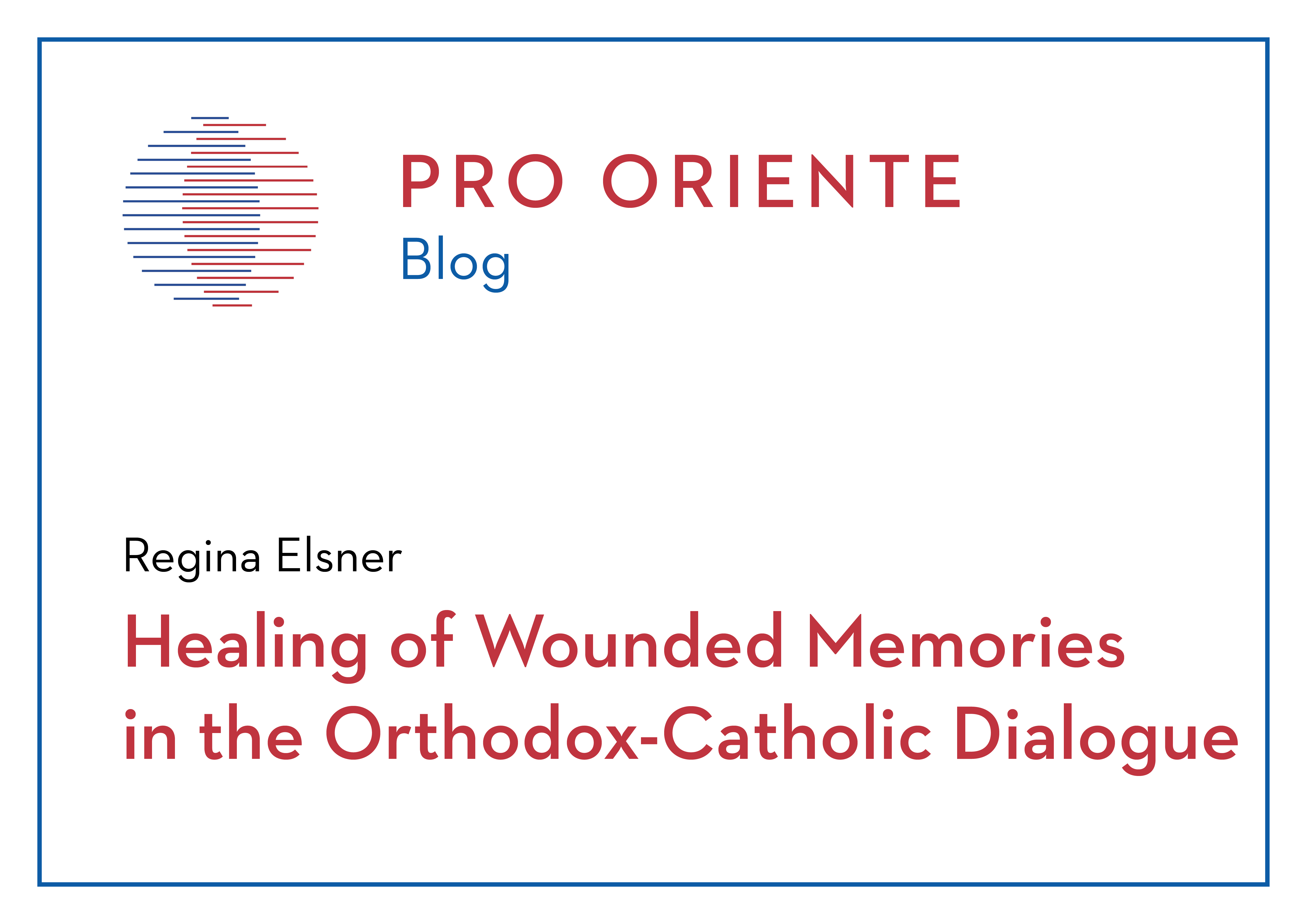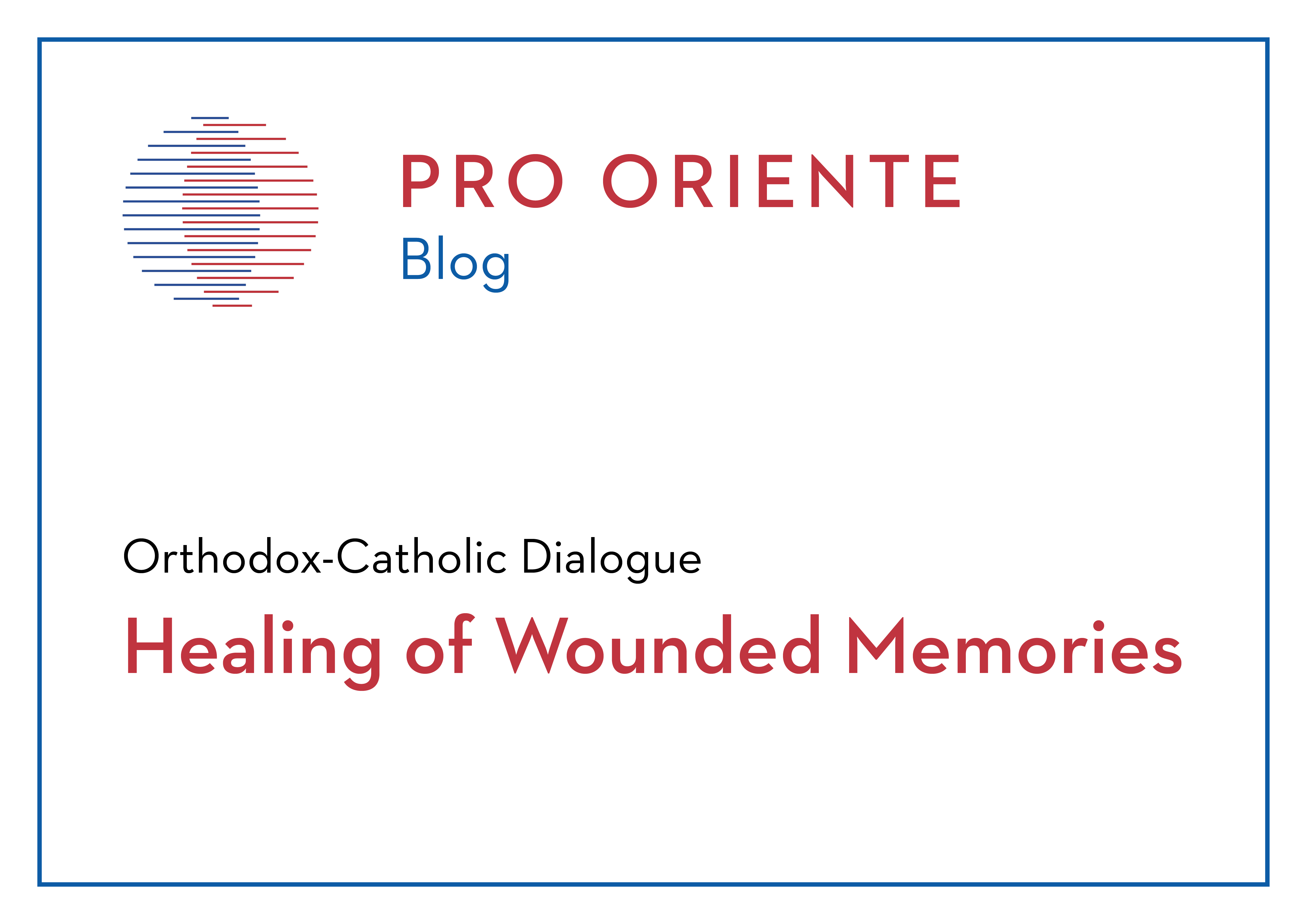Blog
April 2024
Greetings
I am delighted to be able to celebrate the Sixtieth anniversary of the PRO ORIENTE Foundation with you today. We look back with gratitude on many decades of blessed work in the service of reconciliation and rapprochement between the Catholic Church and the Churches of the East.
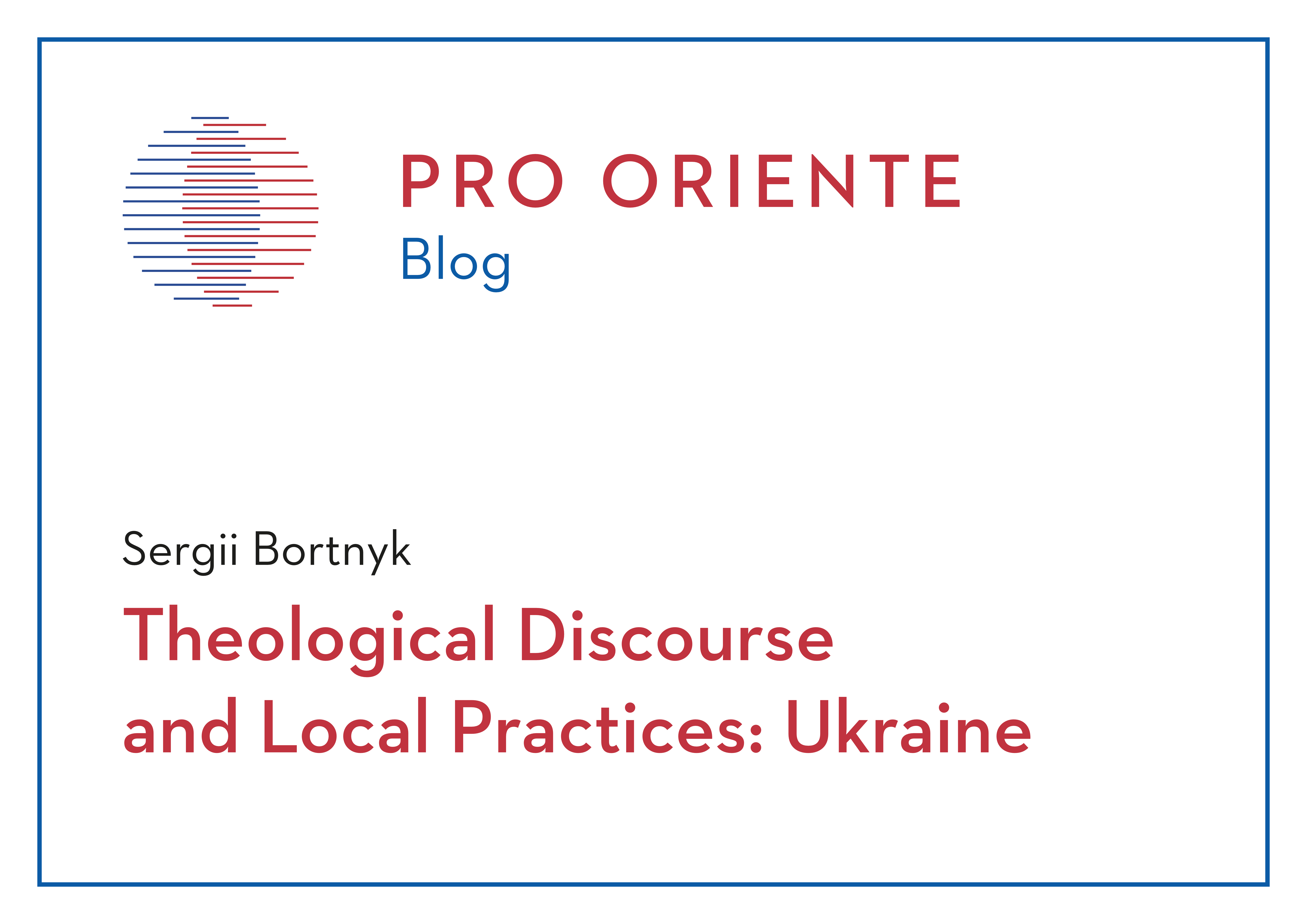
Theological Discourse and Local Practice: Ukraine
Unfortunately, today in Ukraine we are going through the phase that can hardly be called “healing the wounded memory”. Rather, this is the stage of creating new wounds – especially in relationships between two Orthodox jurisdictions – the Ukrainian Orthodox Church (UOC) and Orthodox Church of Ukraine (OCU). Since a long time they have existed in confrontation with each other. At the same time the current phase of the war with Russia is characterized by a revision by the Churches members of their own identity – this can become an impulse for positive changes and future reconciliation between the Churches in Ukraine.
März 2024
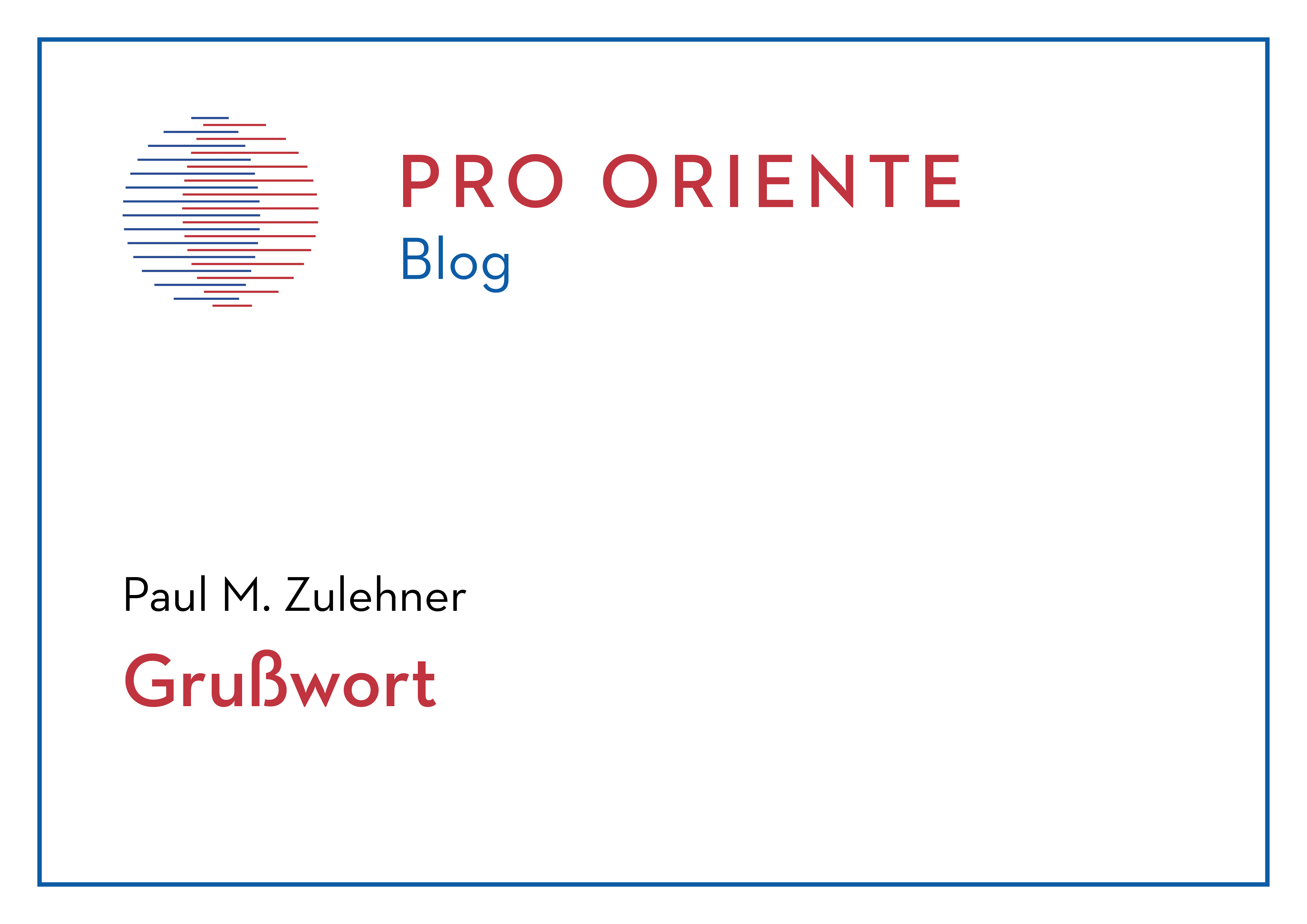
Grußwort
In den sechzig Jahren, in denen es Pro Oriente gab, war weithin eine Zeit des Friedens. Dies begünstigte ökumenischen Dialog, der vielfach theologische und kirchenpolitische Irritationen mit erstaunlichem Erfolg aufarbeiten konnte.
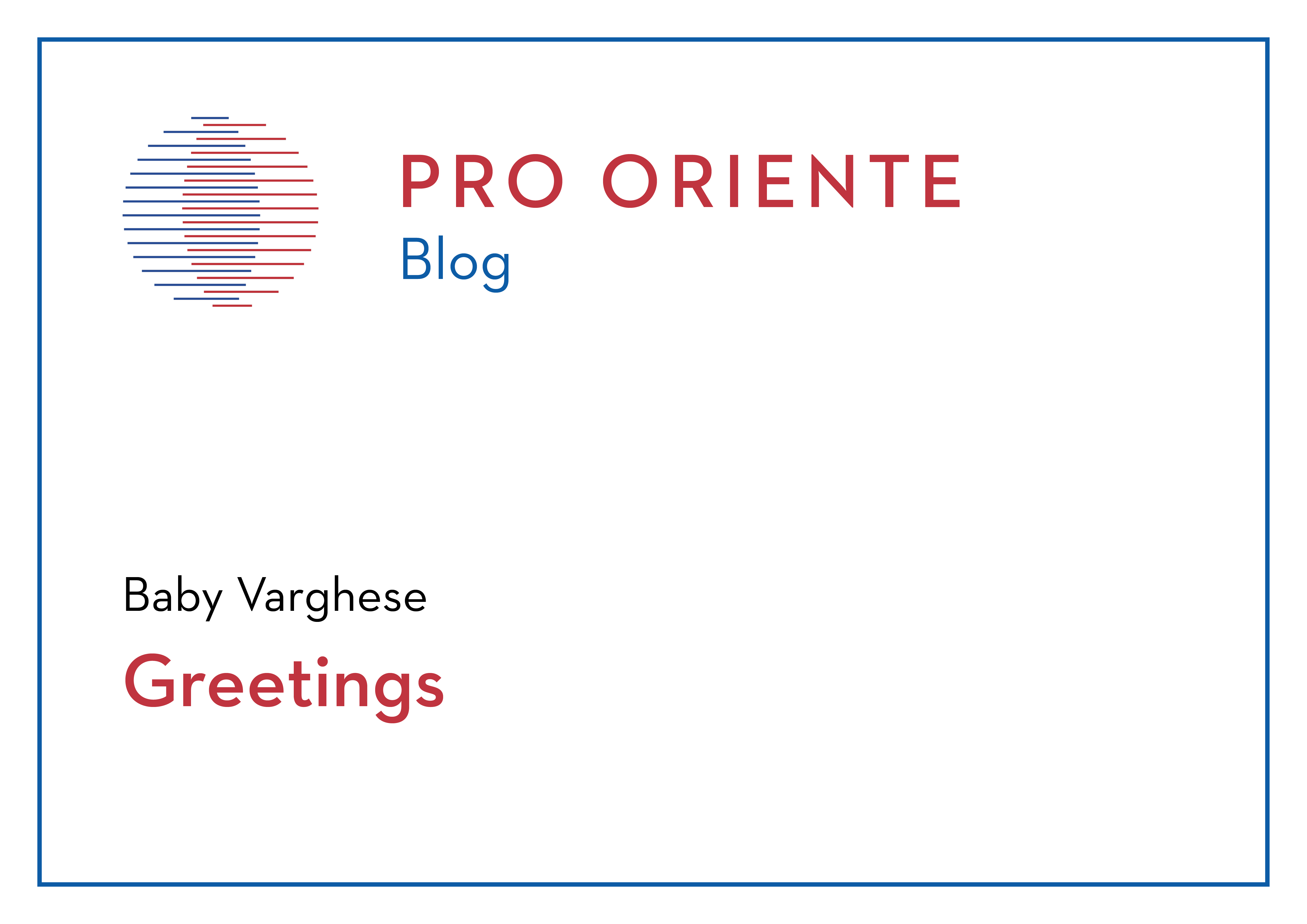
Greetings
Inspired by the Ecumenical vision of the Second Vatican Council, Cardinal Franz Koenig founded the the Pro Oriente Foundation for the reconciliation between the Latin West and the Churches of the Byzantine tradition. Soon the Oriental Orthodox Churches and the Church of the East were invited to join the Ecumenical journey.
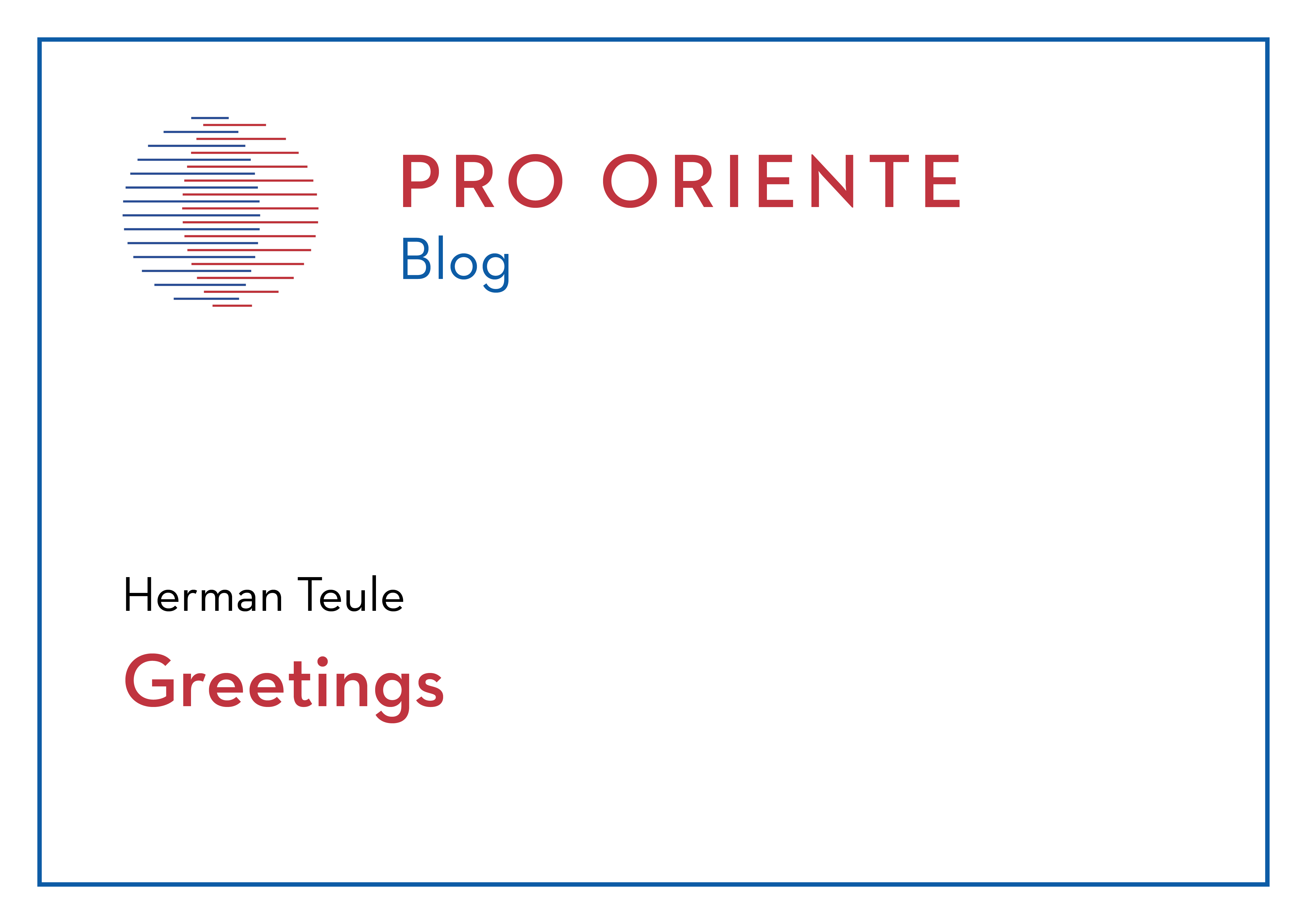
Greetings
As a Consultor of Pro Oriente and a former member of the Syriac Dialogue Commission, I am happy to share some thoughts on the importance of the work that Pro Oriente carries out.
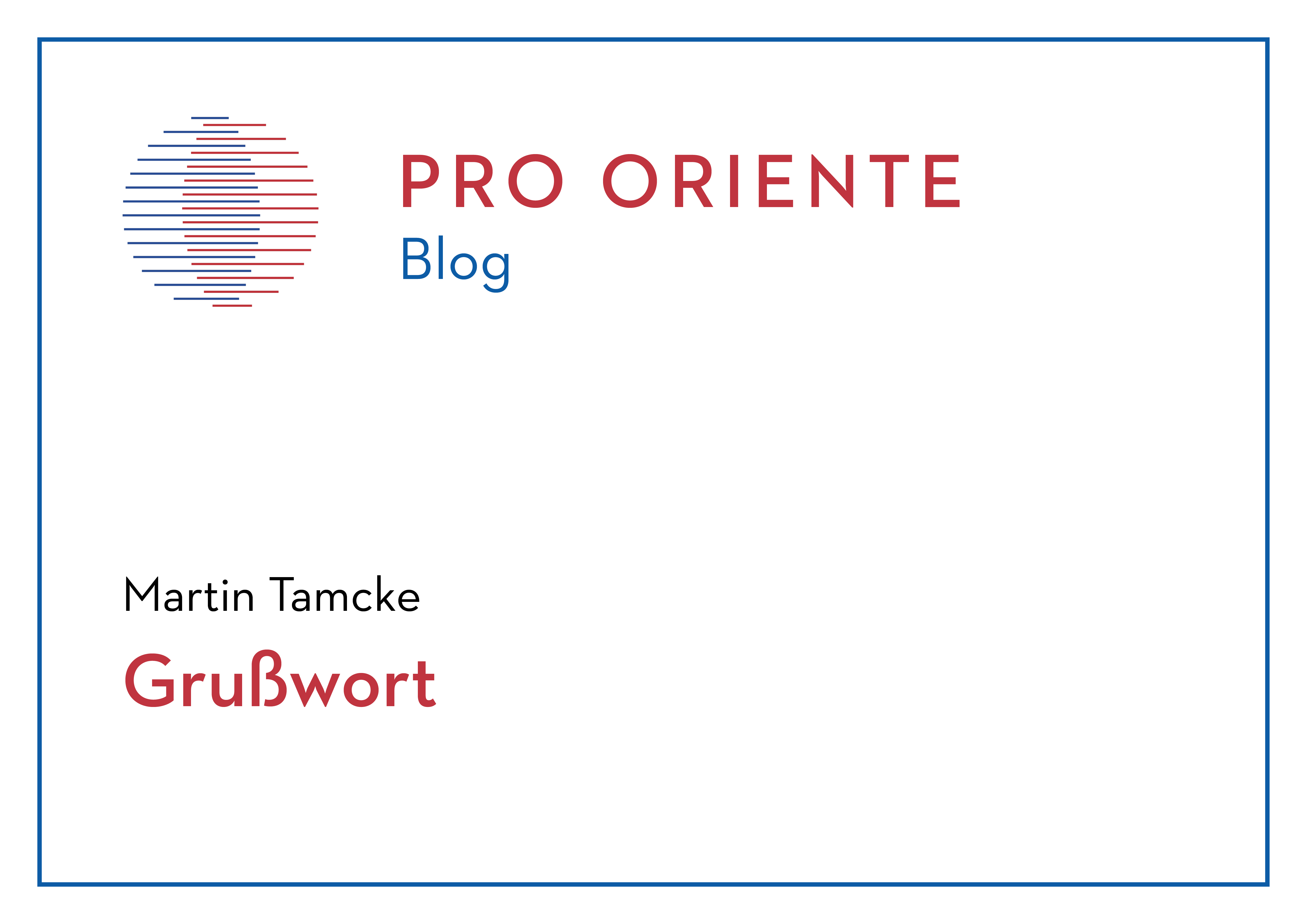
Grußwort
Die Begegnung mit Pro Oriente war für mich eine erhebliche Erweiterung meines Horizontes. dabei denke ich besonders an das Regionalsymposium im Kloster Kröffelbach und Gespräche zum Beispiel mit Alfred Stirnemann, denke an zahlreiche Tagungen und Konferenzen, denke an die gemeinsam mit Pro Oriente ausgerichtete Summerschool (u.a. mit Johann Marte) in Istanbul. Dabei lernte ich, dass der Kontext der Stiftung dieselben Partner, die ich aus anderen Zusammenhängen schon kannte, zuweilen in einem anderen Licht erscheinen ließ.
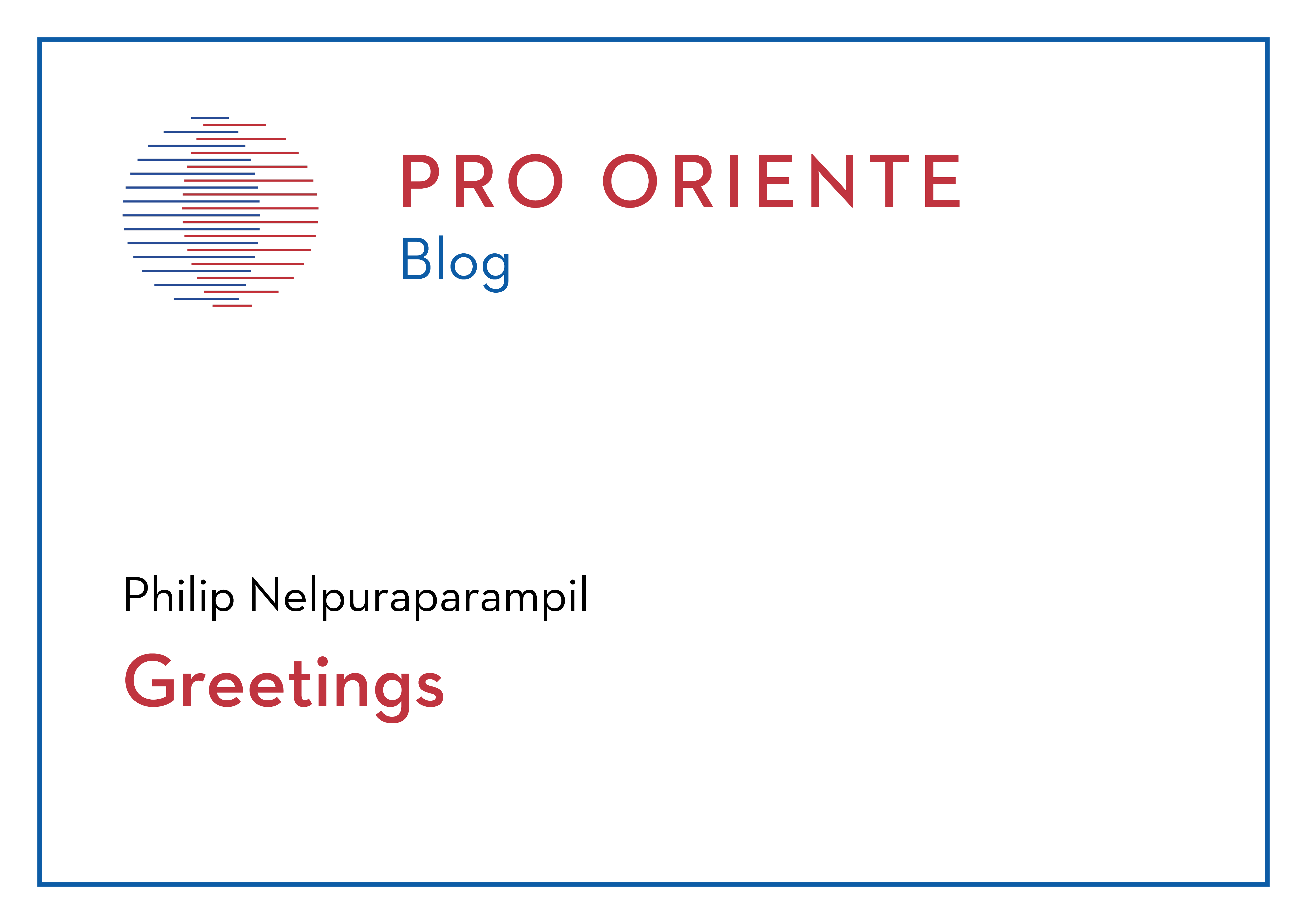
Greetings
The Christological agreement between the Catholic Church and the Malankara Syrian Orthodox Church in 1984 and the agreement between the Catholic Church and the Malankara Orthodox Syrian Church in 1990 in fact fundamentally influenced by the Christological discussions of the Catholic and the Oriental Orthodox theologians under the auspices of the Pro Oriente foundation in Vienna in early 1970’s.
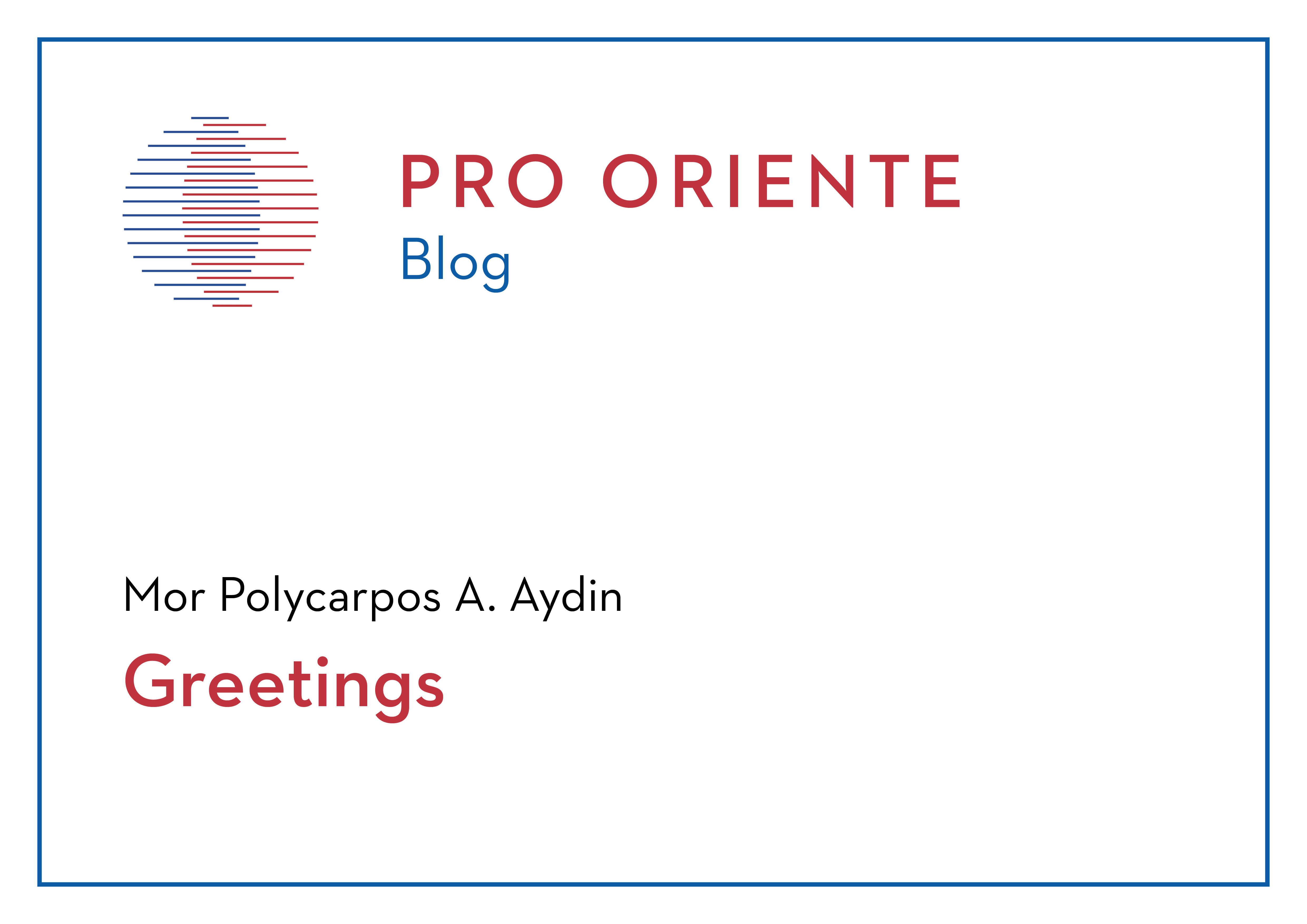
Greetings
As we stand at the threshold of the 60th Anniversary of the PRO ORIENTE Foundation, I am filled with immense gratitude for the foundation’s unwavering commitment to ecumenical rapprochement and cooperation among Christian Churches, particularly in dialogue with the Churches of the Orient/East.
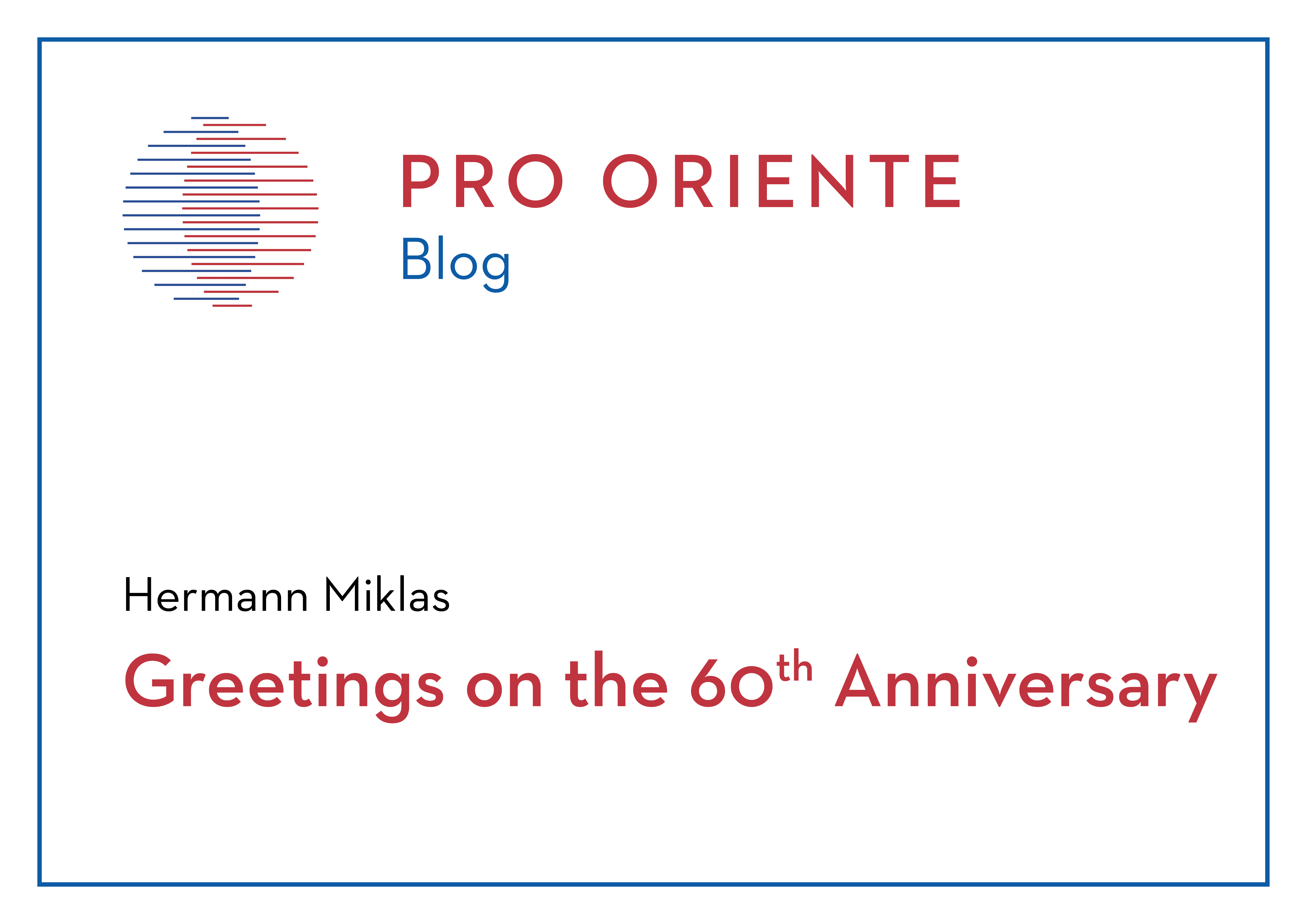
Gruß zum 60-Jahr-Jubiläum von PRO ORIENTE
Mit der Gründung von PRO ORIENTE durch Kardinal Franz König im Jahr 1964 war eine große Vision verbunden: Die Vision der Versöhnung. 60 Jahre sind seither vergangen, in denen sich die Welt mehrfach grundlegend verändert hat. Und mit ihr die Kirchen in Ost und West. Doch die vielen, vielen Begegnungen im Rahmen von PRO ORIENTE erwiesen sich dabei als großer Segen. Und sie fanden stets auf gleicher Augenhöhe statt. An einige von ihnen, an denen auch ich teilnehmen durfte, erinnere ich mich mit großer Dankbarkeit.
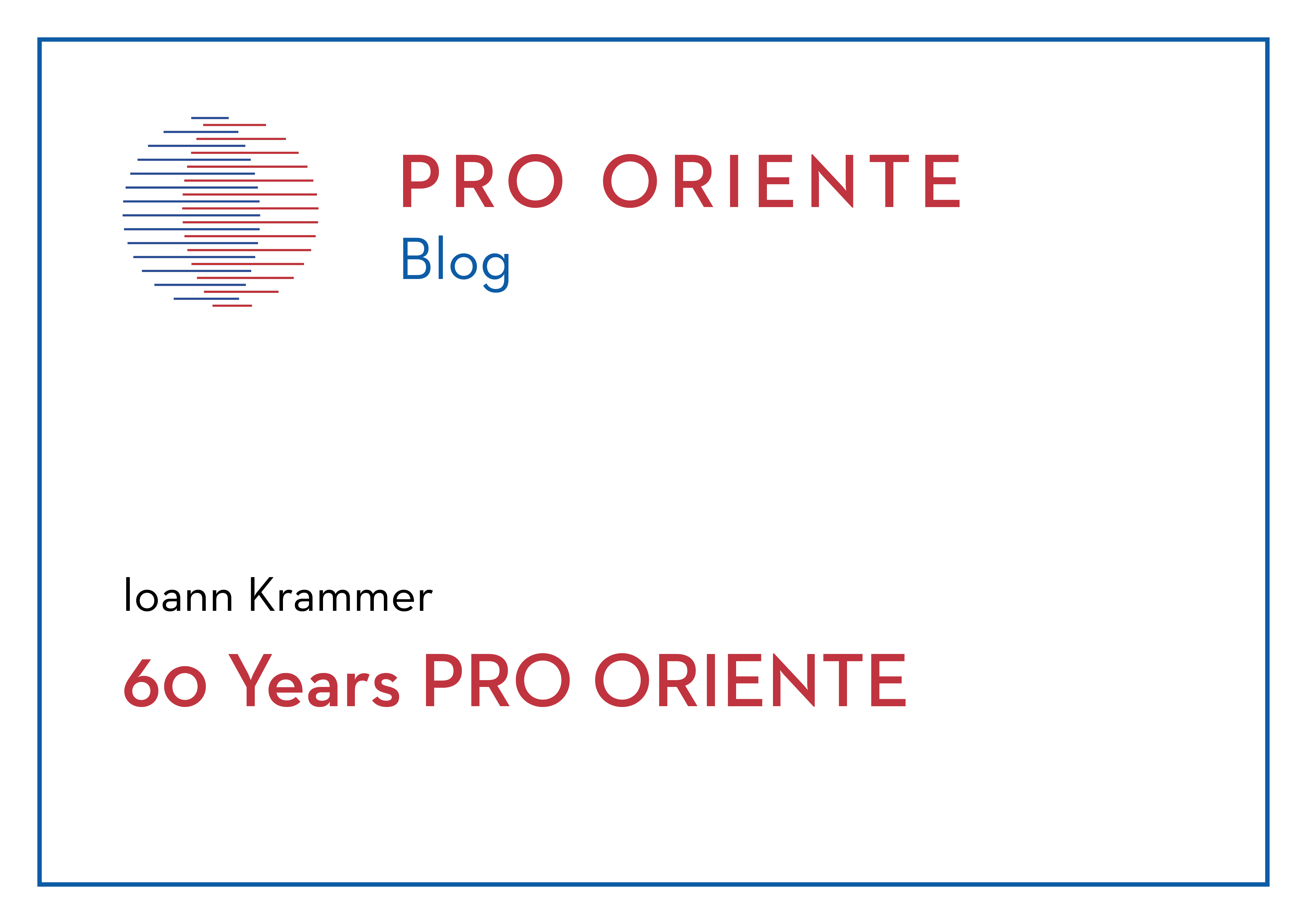
60 Years PRO ORIENTE
Since my studies in Innsbruck and Rome at the Pontificium Institutum Orientale, I have had the privilege of maintaining numerous contacts with the Pro Oriente Foundation, especially after my return to Austria in 1970. The Orthodox and Oriental Orthodox churches were a small minority in Austria 50 years ago. Pro Oriente offered them a beneficial platform where they could present themselves in the ecumenical symposia, and many books and publications also publicised the Eastern churches to broader sections of society. The archbishops of Vienna always showed them interest and favour.
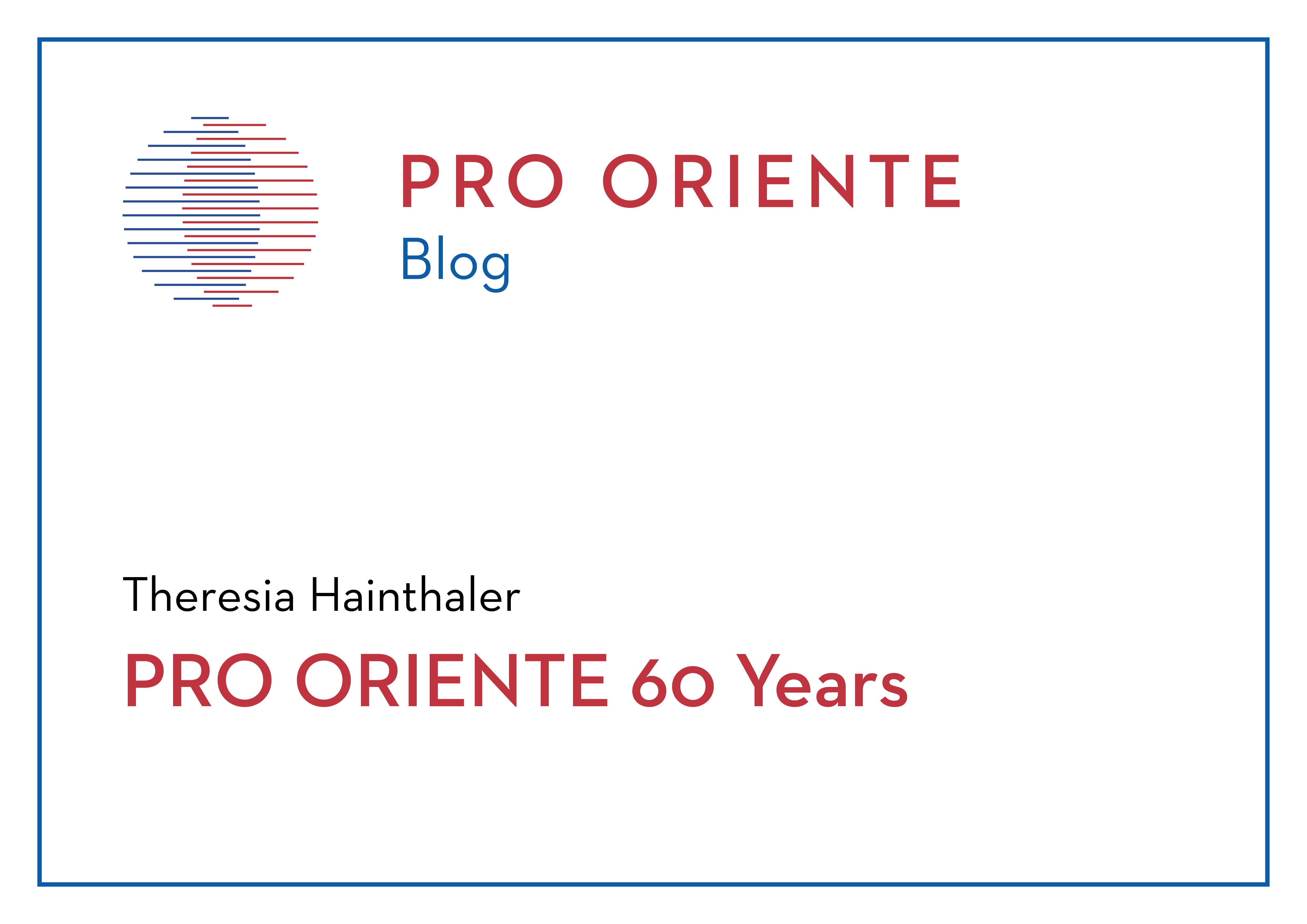
PRO ORIENTE 60 Years
In 1989, PRO ORIENTE could celebrate 25 years. Alois Grillmeier SJ formulated in vol. 2/2: The Church of Constantinople in the Sixth Century of “Jesus der Christus im Glauben der Kirche“ (English: Christ in Christian Tradition) the following dedication to Cardinal Koenig and the foundation PRO ORIENTE instituted by him, the promotors of the dialogue with the Churches of the East: “Domino Francisco Cardinali Koenig dialogi cum ecclesiis orientalibus promotori et institutioni ‘Pro Oriente’ quinque lustris ante ab ipso fundatae”.
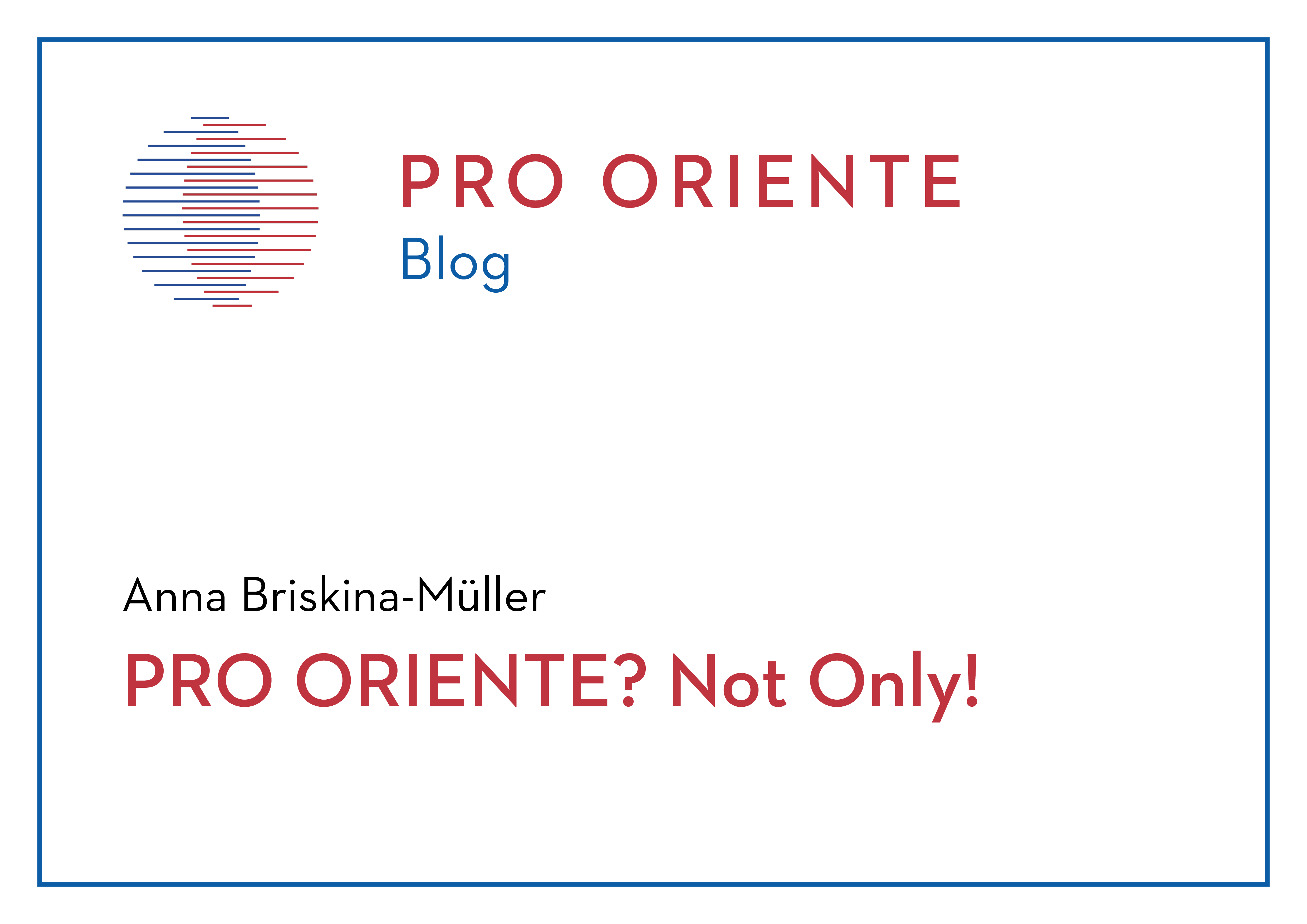
Pro Oriente? Not Only!
Pro Oriente? Not only! Wherever you look, no direction seems to have been overlooked in these 60 years, be it in the geographical, historical or political sense. Nevertheless, the view always remains focused: when things were going badly politically in the world, the Pro Oriente has ensured in its work that the accents are set in such a way that that political tragedies do not make Christian hope forgotten; when the political situation improves, the Pro Oriente has never done focus on political delights so much that they become a source of hope. The Pro Oriente takes the political circumstances into account, but it does not want to be politics itself.
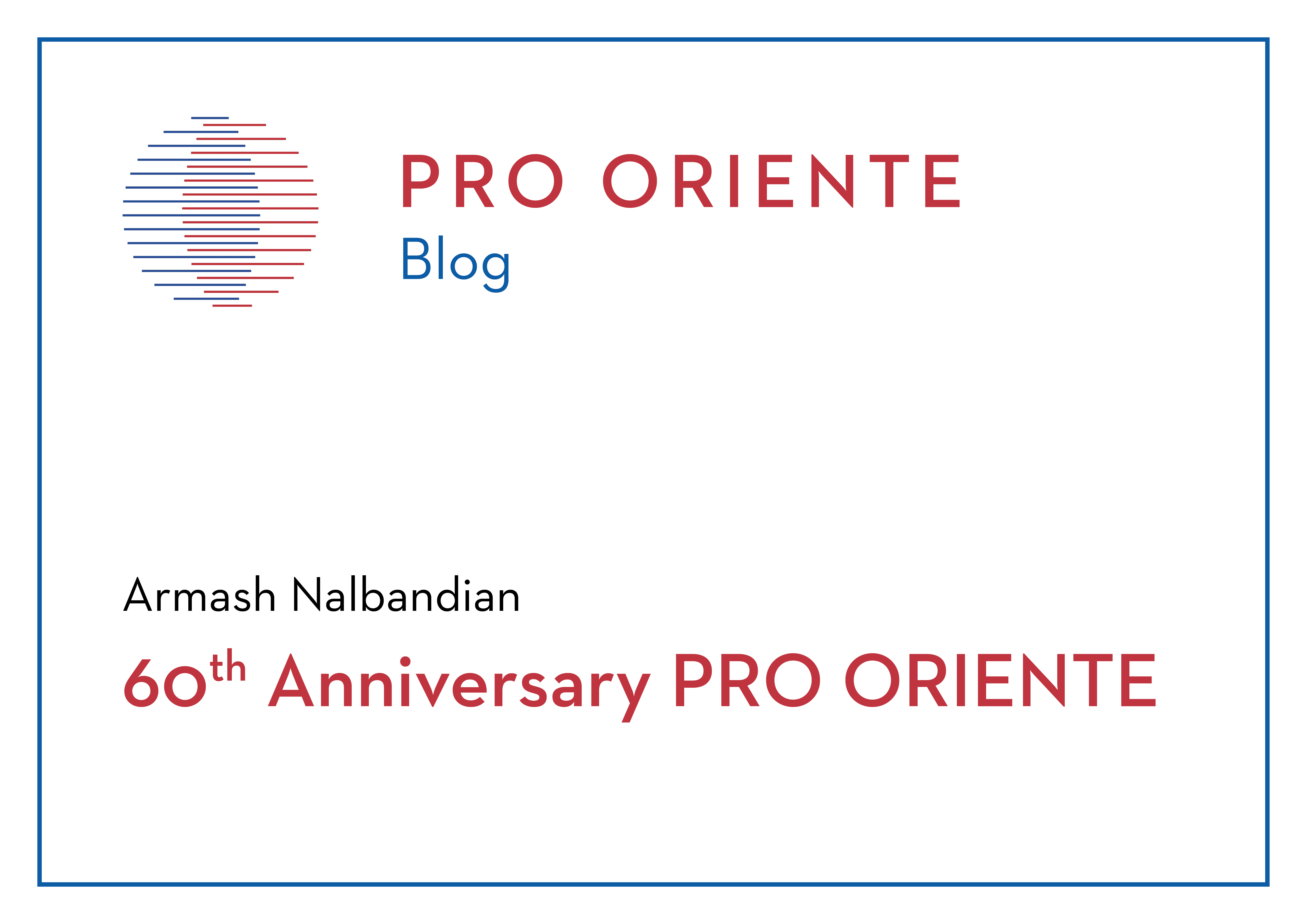
60th Anniversary PRO ORIENTE
It is with great pleasure that I extend my warmest congratulations to you on the momentous occasion of your 60th anniversary. This significant milestone is a testament to the dedication, vision, and enduring commitment of PRO ORIENTE to promoting ecumenical dialogue over the past six decades.
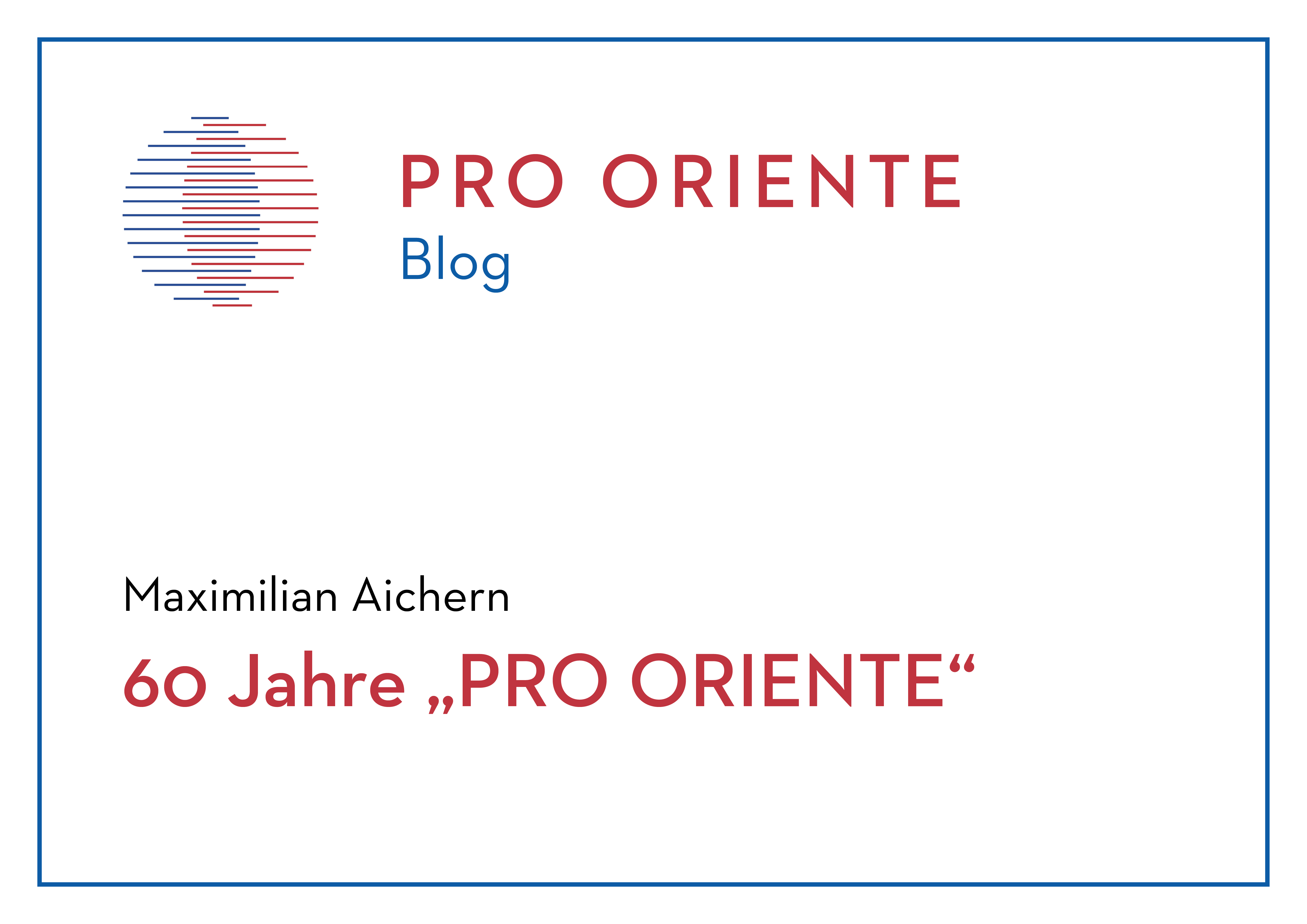
60 Jahre „Pro Oriente“
Zu den großen Anliegen des II. Vatikanischen Konzils gehört der Dialog sowohl innerhalb der Christenheit als auch mit der Welt und ihren Lebensbereichen. Einer der maßgeblichen Pioniere war der Wiener Erzbischof Kardinal Dr. Franz König, der 1964 die Stiftung „Pro Oriente“ für die Wiederannäherung und die ökumenische Zusammenarbeit mit den Kirchen des Ostens gründete und maßgeblicher Träger des Dialogs und zahlreicher Initiativen war.
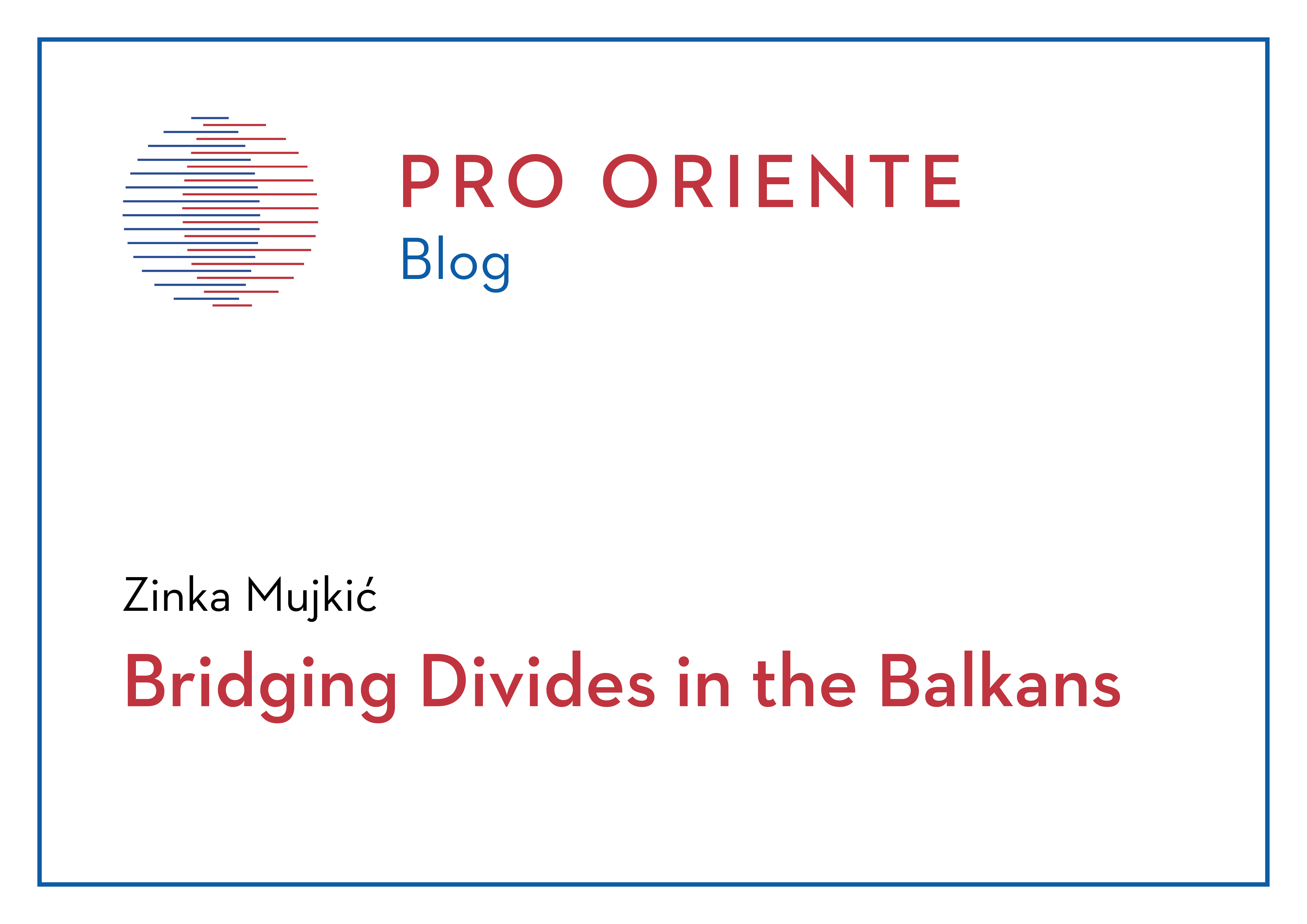
Bridging Divindes in the Balkans
As a participant in the conference of the “Healing of Wounded Memories” project, I was driven to share insights into our theological initiatives addressing the multifaceted issues discussed- an endeavor both proud and humbling. The goal of exploring transitional justice and reconciliation, as outlined in the conference objectives, was profoundly impacted by the ongoing war in Ukraine, conflicts in the Holy Land, and the geopolitical tensions casting a prevailing shadow over Southeastern Europe’s stability. This circumstance has heightened our eagerness to present our ecumenical vision, particularly within the intricate tapestry of the Balkans. Here, where wounds from past conflicts linger, the theological discourse serves as a vital compass guiding the way toward reconciliation and healing. The ongoing challenges only strengthen our resolve to navigate our work in the complexities of this region.
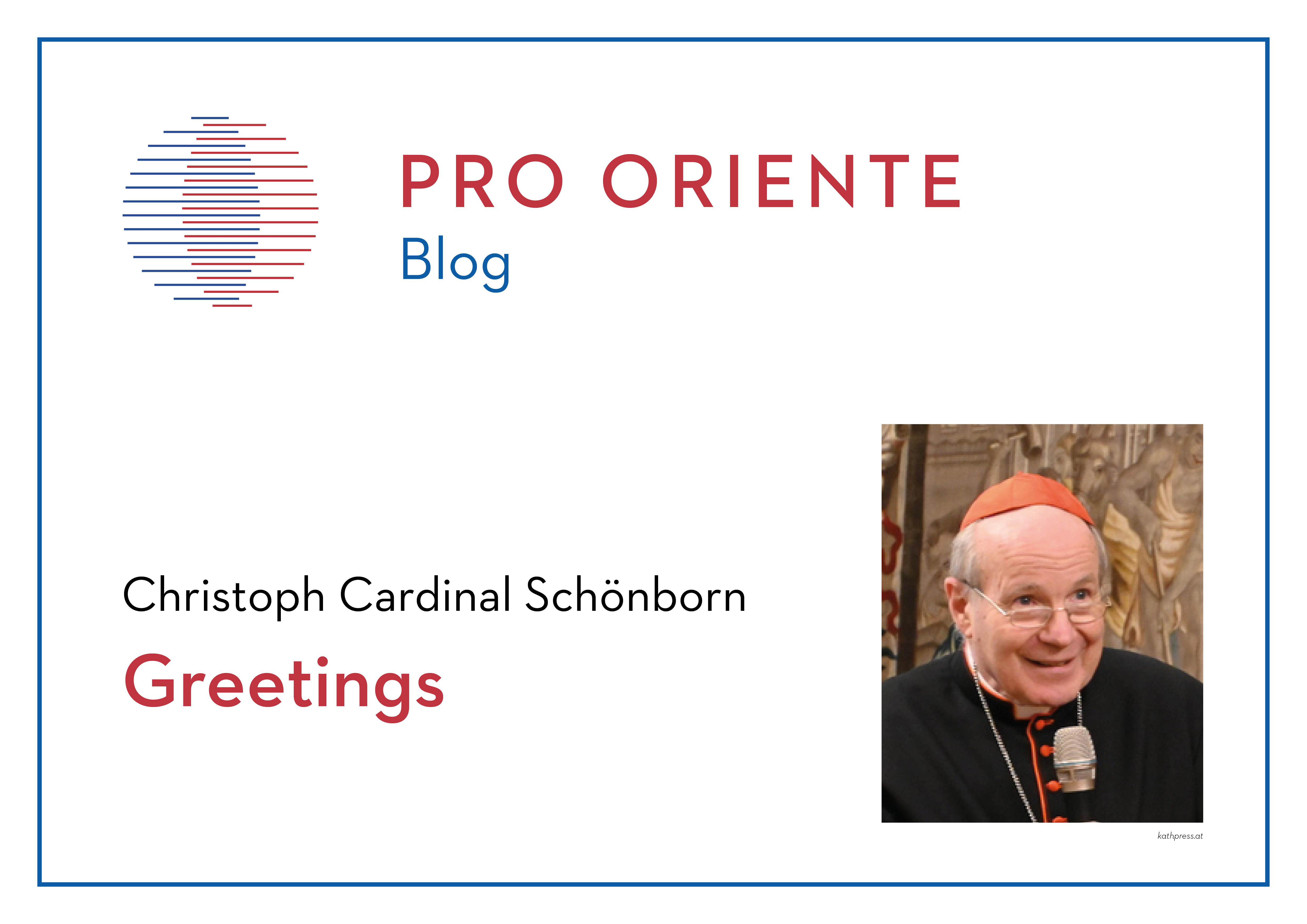
Greetings of Christoph Cardinal Schönborn
My memories go back 50 years when I first came into contact with the than 10-years-young foundation. As a young theologian I participated (as listener) at the famous Symposium on Ecclesiology in 1974. In the early 80s Cardinal König called me to join the directory of Pro Oriente. For nearly 30 years I have the honor to be Protector of the Foundation.
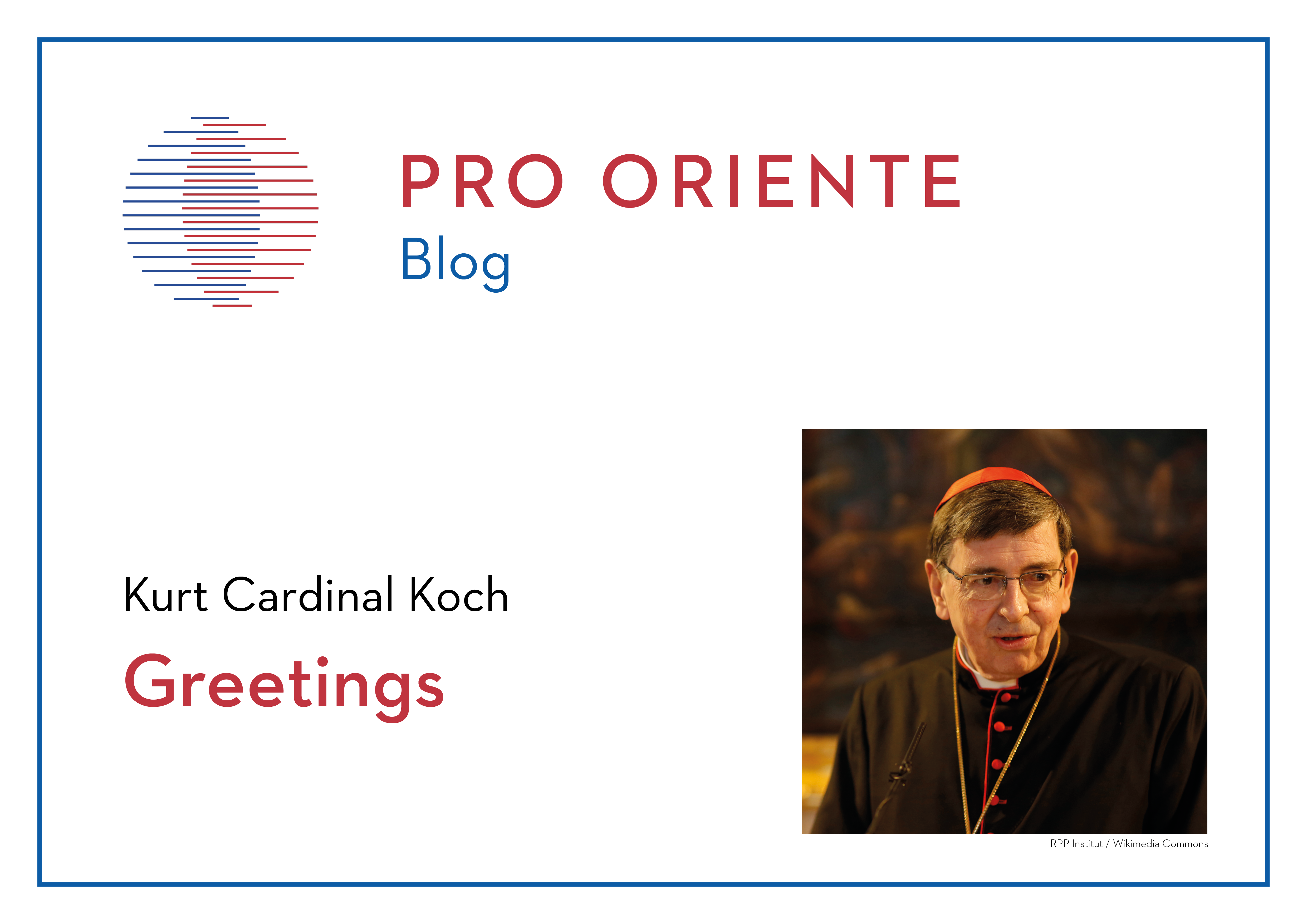
Greetings of Kurt Cardinal Koch
On the occasion of its 60th anniversary, I would like to thank the PRO ORIENTE Foundation for its precious contribution to ecumenical dialogue since its establishment in the year 1964 by Cardinal Franz König, during the Second Vatican Council.
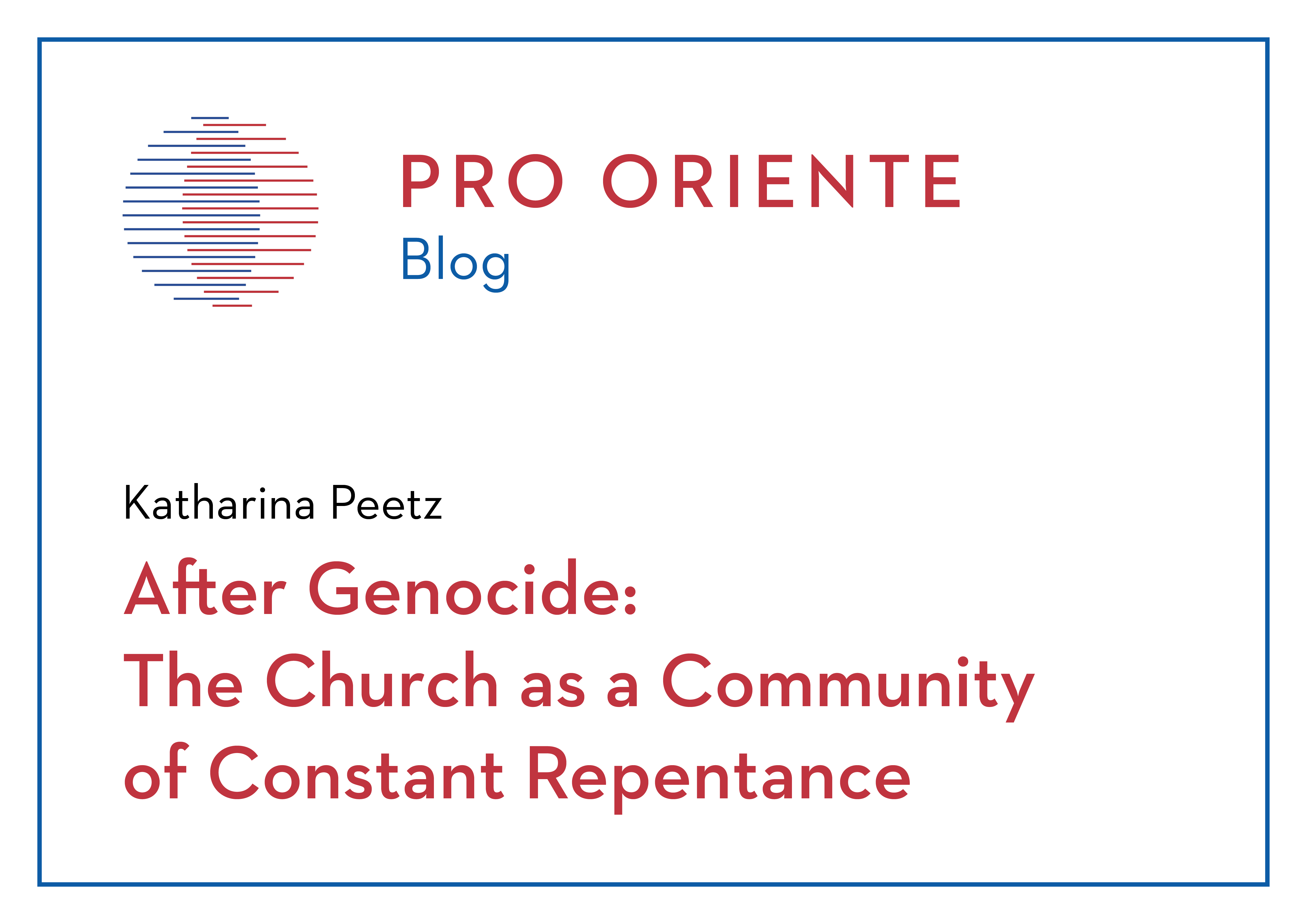
After Genocide: The Church as a Community of Constant Repentance
The holy Church is not a societas perfecta that exists outside of history, human error or the limitations of time and space. It can be assured of its own holiness only as a result of God’s grace and his decision to answer the Church’s epicletic plea for holiness. As the community of the faithful the Church is in constant need of sanctification. Repentance in this sense means a lifelong dynamic of spiritual and existential transformation, a holistic metamorphosis of the whole Church: metanoia.
Februar 2024
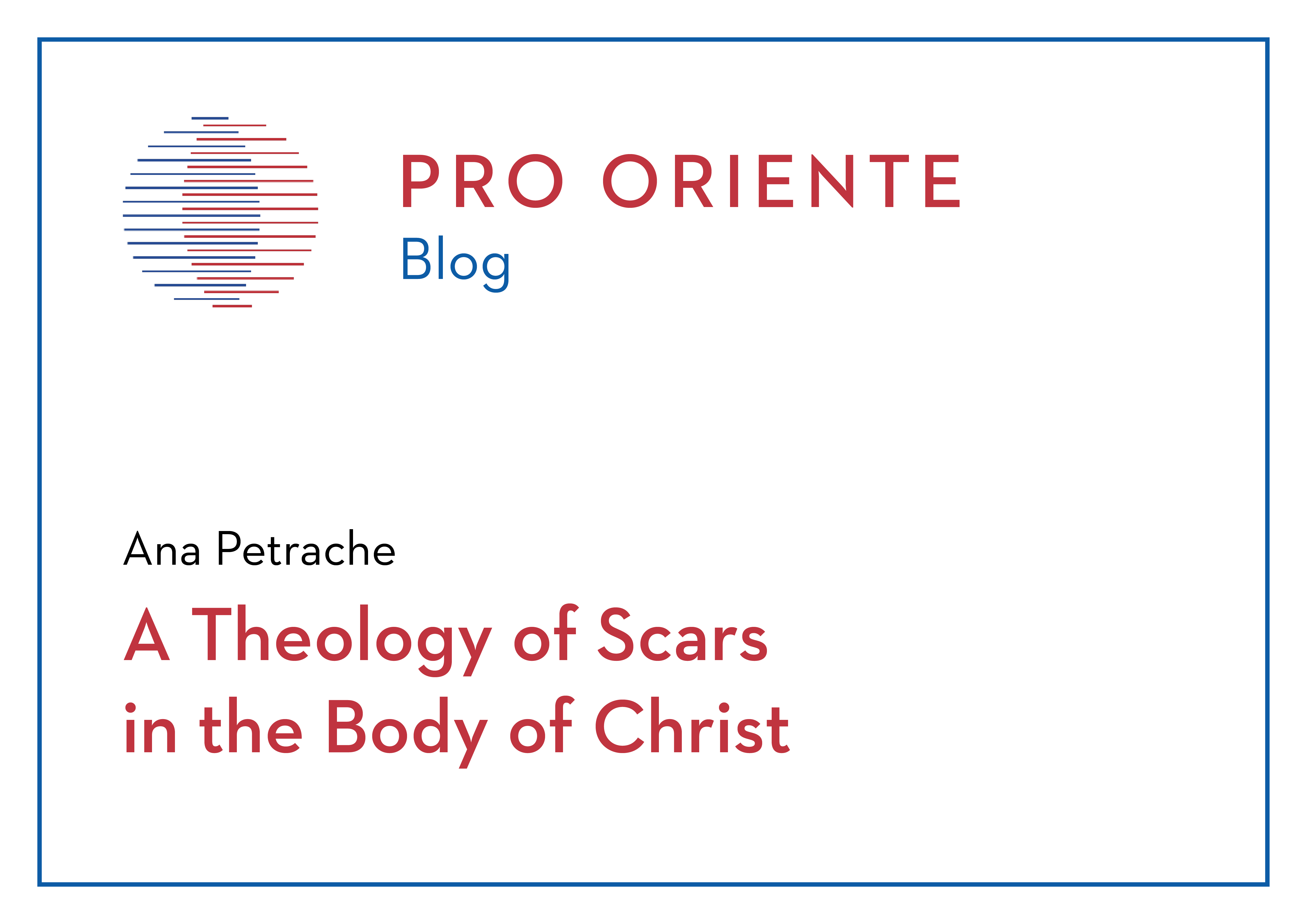
A Theology of Scars of the Body of Christ
“What we must do is not heal ourselves, not treat, console, reassure, or educate others, but to remain erect in the sacred wound, to see and show it in silence”. – This line appears in the book The Most Secret Memory of Men, by Mohamed Mbougar Sarr, a Senegalese young author who won the Goncourt Price in France in 2021. The context of the paragraph is a tragic story of an infant who is witnessing the killing of his parents, the parents are tortured, and the child hears their cries. After this episode, the aggressor realizes that the child has witnessed this massacre, and he decides not to kill the child. However, not out of mercy. The decision to spare his life arises from the belief that living with the memory of such horrors is more torturous than death itself.
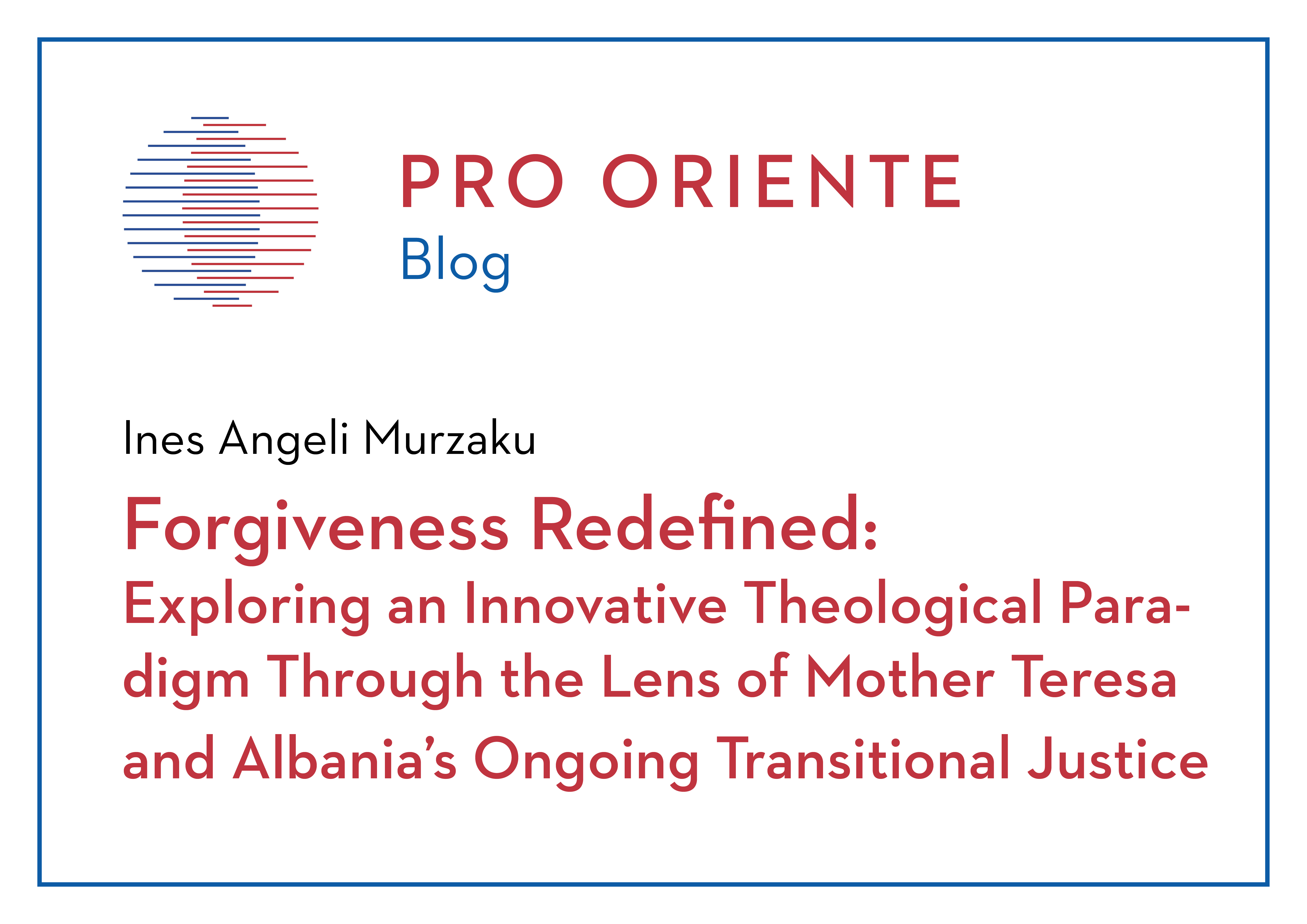
Forgiveness Redefined: Exploring an Innovative Theological Paradigm Through the Lens of Mother Teresa and Albania’s Ongoing Transitional Justice
Albania, known for its religious diversity and history of severe Communist persecution, stands as a significant case study in transitional justice, ecumenical and interfaith reconciliation, and the concept of Holistic Reconciliation. This paper explores Albania’s religious composition, where Sunni Muslims constitute nearly 57 percent of the population, Roman Catholics 10 percent, members of the Albanian Orthodox Church 7 percent, and members of the Bektashi Order (an Islamic Sufi order) 2 percent. All religious groups in Albania, including the Catholic Church, faced severe persecution during the Communist era. These persecution united religious and lay individuals, highlighting the need for transitional justice. Albania’s situation underscores the importance of Holistic Reconciliation, with religious leaders playing a key role in this process.
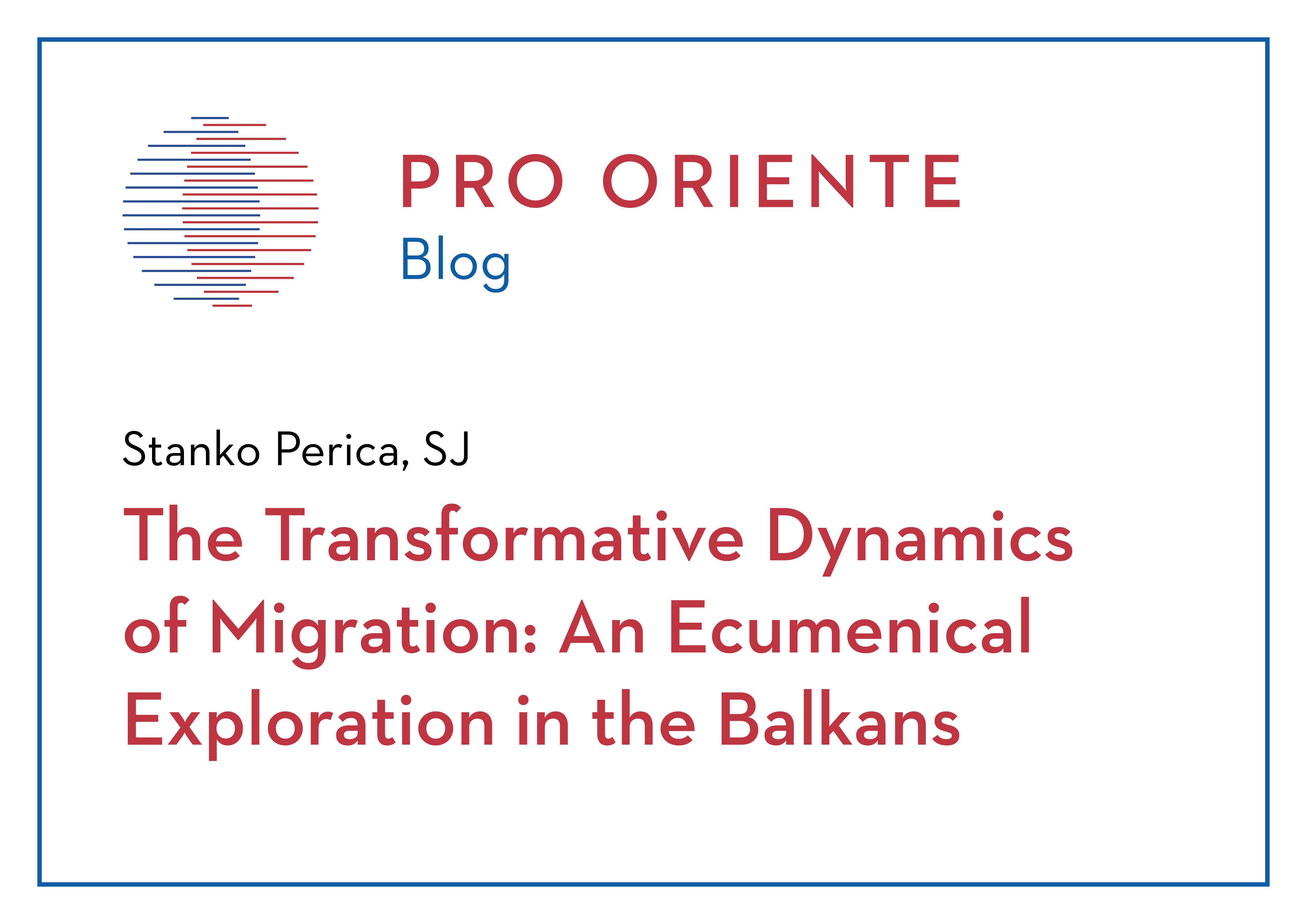
The Transformative Dynamics of Migration: An Ecumenical Exploration in the Balkans
This paper delves into the multifaceted impact of the migration phenomenon that unfolds in the Balkans since 2015. By examining its evolution, socio-political consequences, and the unexpected role of migrants and refugees in fostering ecumenism, it unfolds the intricate tapestry of contemporary migration in the region. Through a three-fold analysis, the paper investigates how migrants become unexpected allies of ecumenism, enhance the relevance of churches, and contribute to a heightened capacity for empathetic listening among diverse religious communities.




